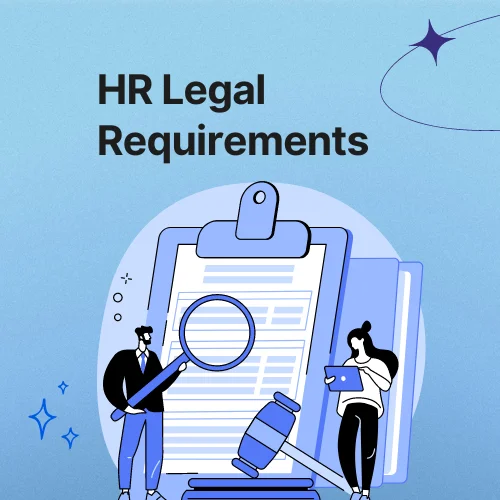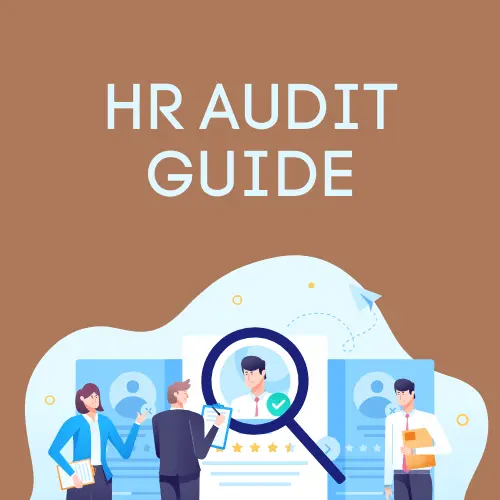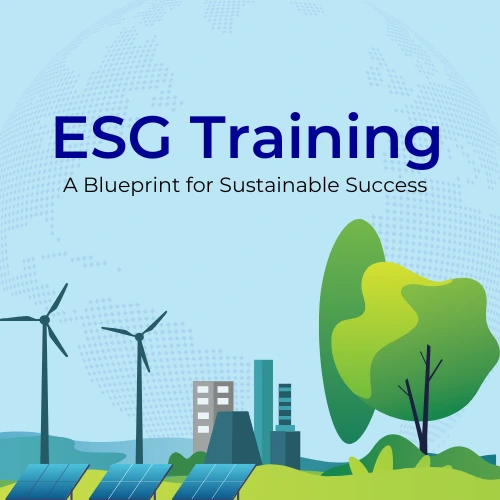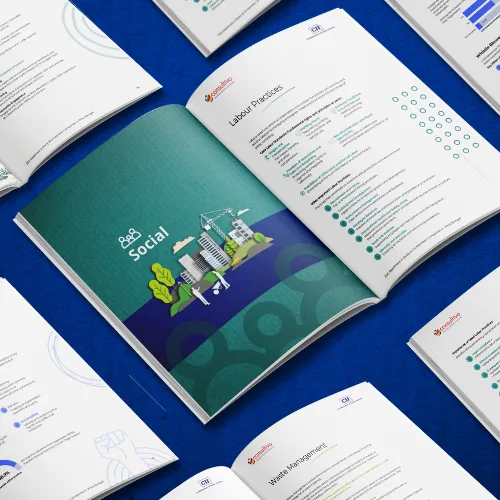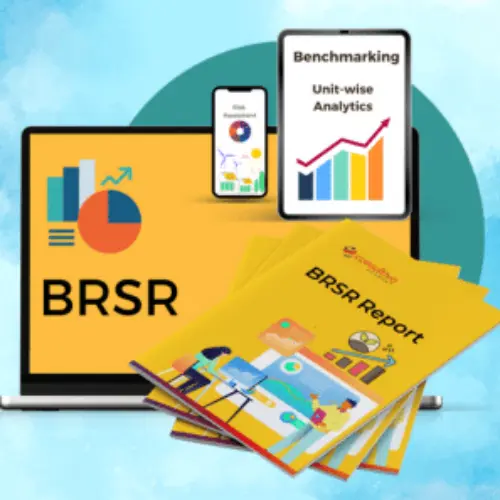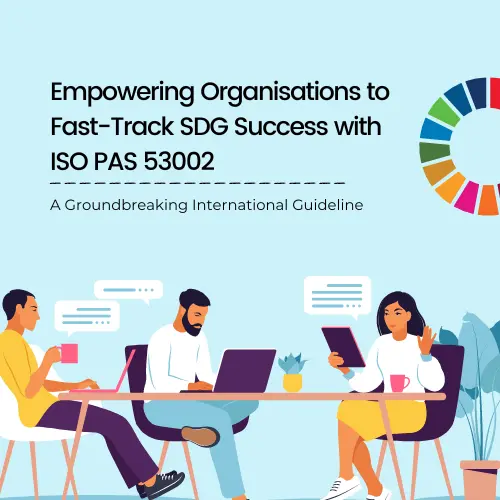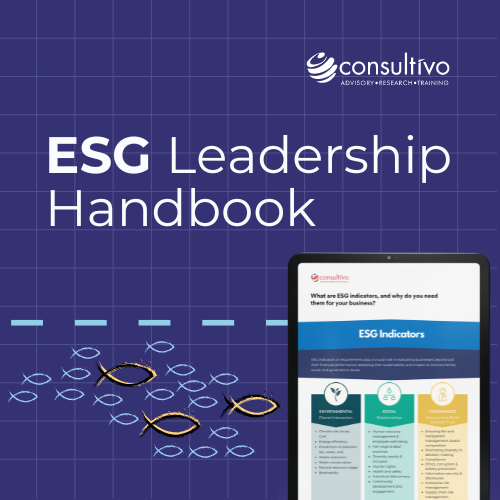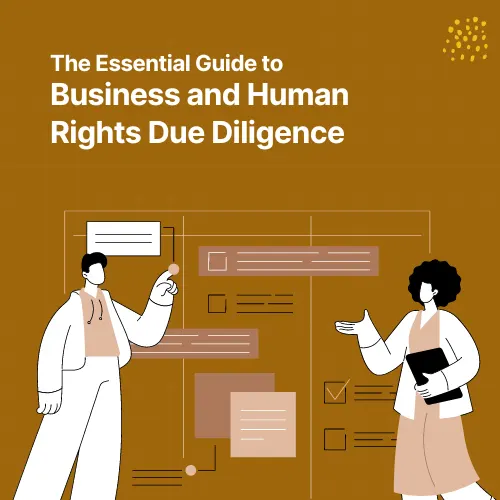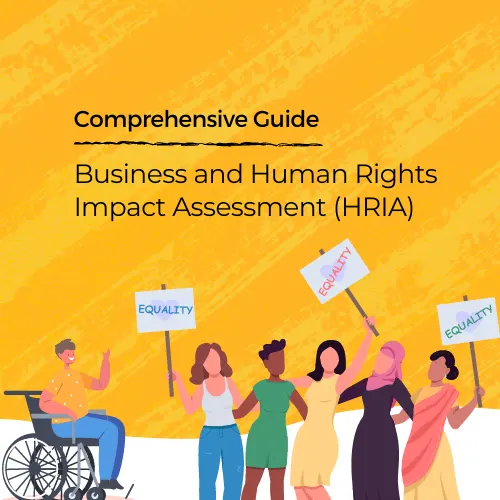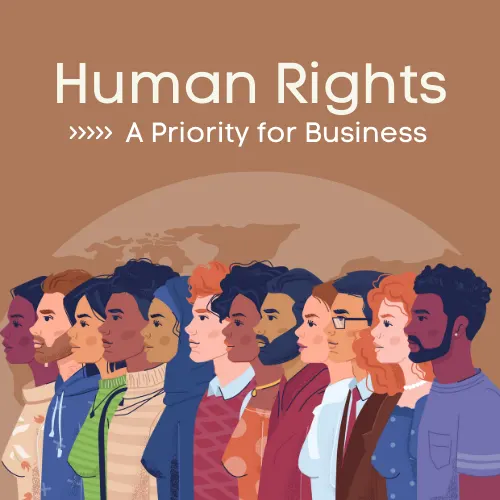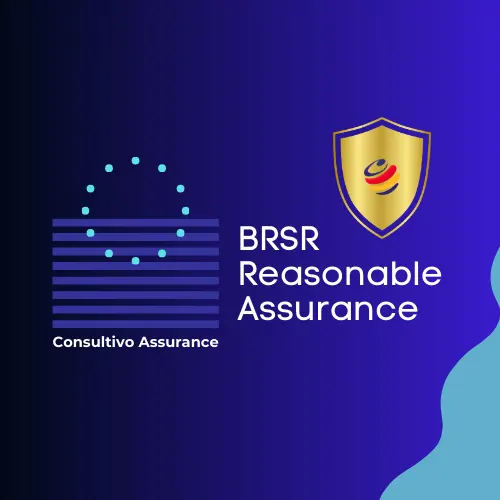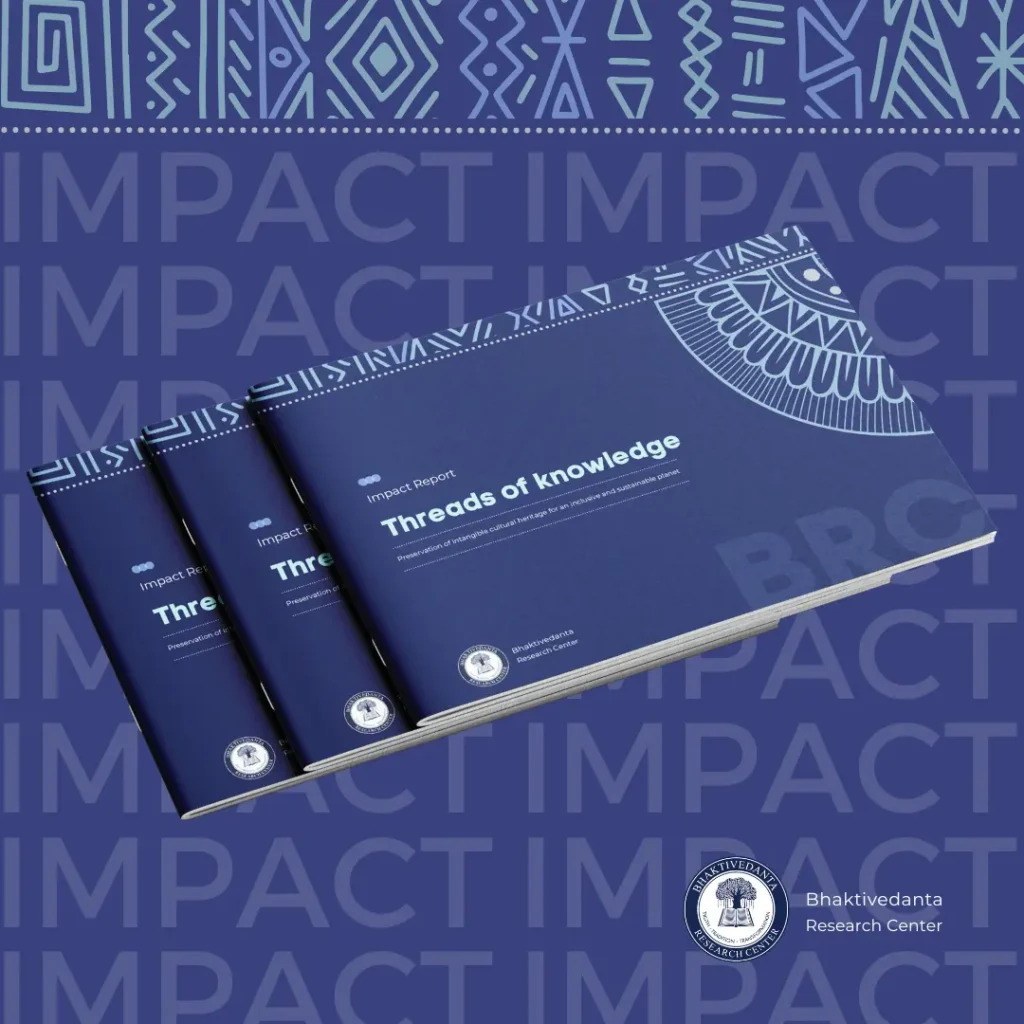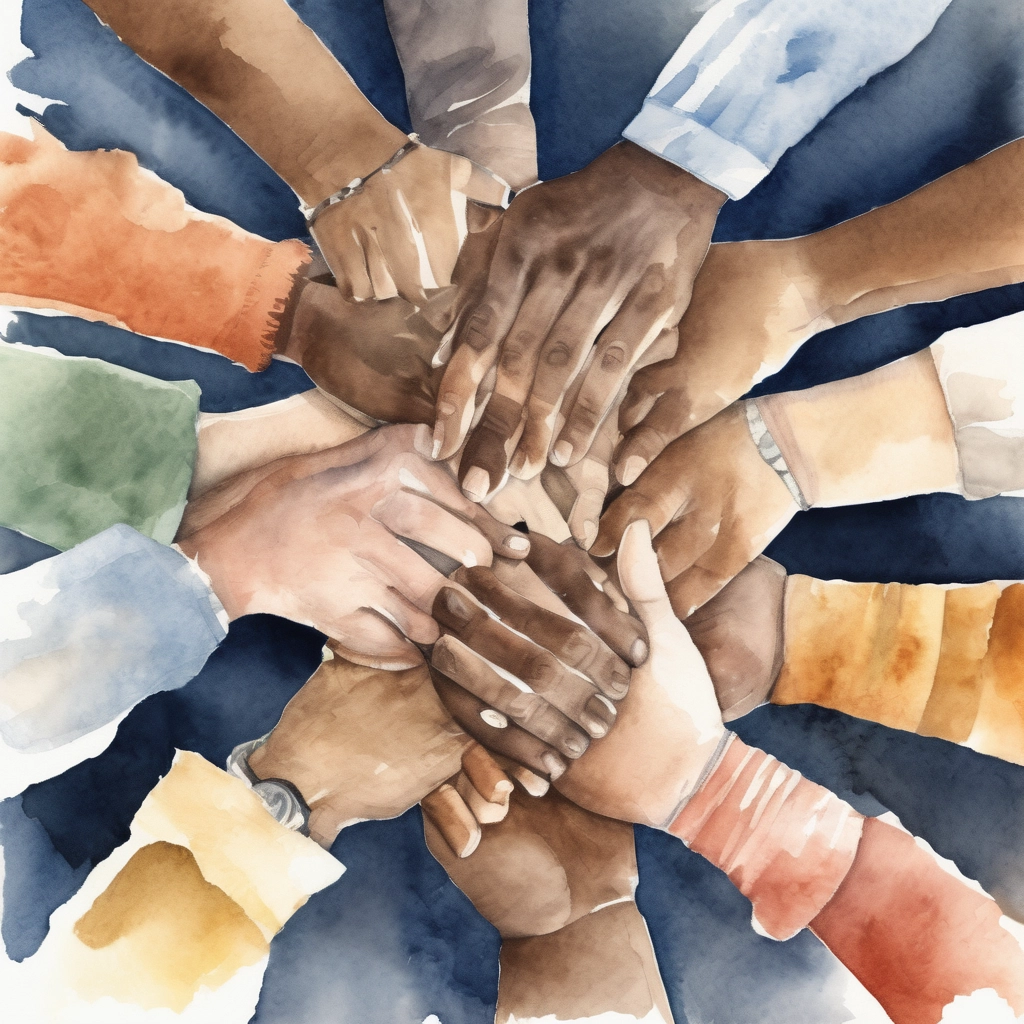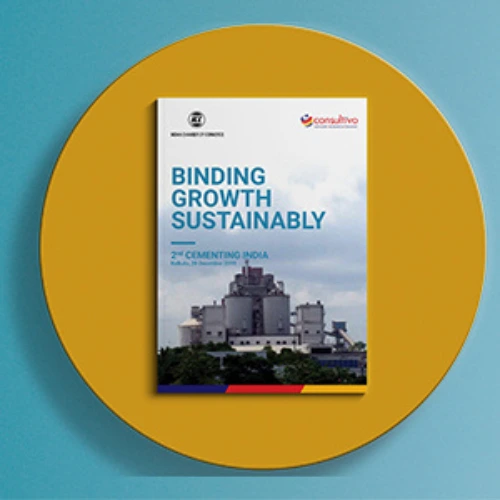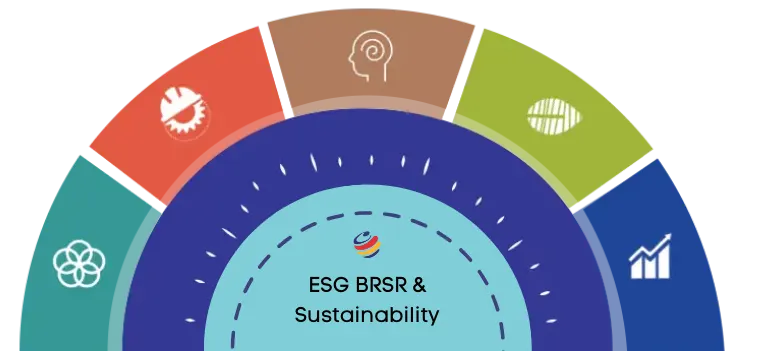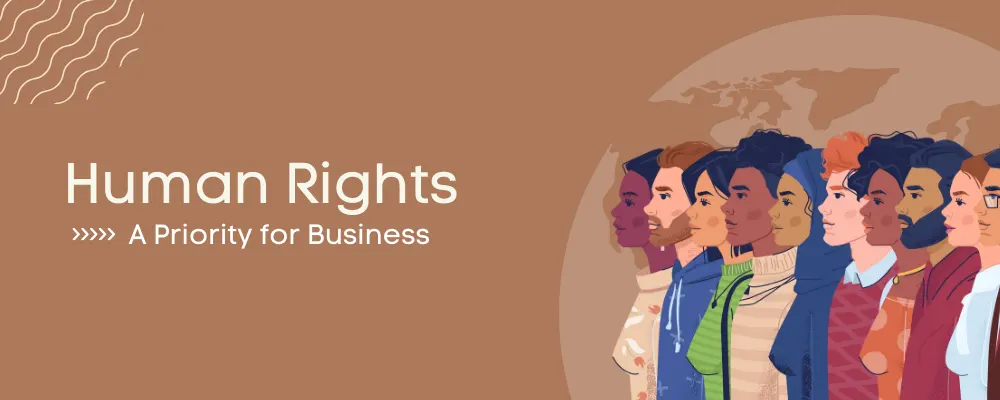
Business and Human Rights or B+HR means that companies have a duty to respect and safeguard human rights. They should ensure their activities and actions don’t harm people and should actively promote human rights in their operations and relationships with others like those in the supply chain or value chain.
What you will find here
In today’s world, businesses have a much greater duty than simply generating profits. It’s no longer enough to concentrate entirely on the bottom line.
Companies are now expected to function in a principled and socially responsible way, taking into the narrative the effect they have on society and the environment.
One of the key areas where businesses can make a distinction is in the sphere of human rights. From labour practices to supply chain management, businesses have a meaningful impact on the lives of people all over the world.
In this article, we’ll investigate why human rights should be the first concern for every business, and examine the risks and rewards of doing so. We’ll look at real-world instances of companies that have prioritised human rights, and review the productive impact it has had on both their standing and their bottom lines.
Read on to understand more about why human rights count, and how your business can make a positive impact.
Risks and consequences for businesses that violate human rights
Businesses that violate human rights can face serious consequences. Negligence of human rights can damage a company’s reputation, lead to judicial action, and harm the company’s bottom line.
For example, in 2013, a garment workshop in Bangladesh suffered a catastrophic collapse, killing over 1,100 people. The factory was manufacturing clothing for major global brands, and the disaster brought scrutiny to the poor working conditions in the garment industry.
The companies that were linked with the factory faced resentment from consumers and activists, and many were forced to take action to revamp the conditions in their supply chains.
Companies that contravene human rights can also face legal action. In recent years, there have been a number of high-profile litigations against companies for human rights violations, including allegations of forced labour, child labour, and environmental damage.
These lawsuits can result in significant financial punishments, as well as deterioration in the company’s reputation.
Furthermore, violations of human rights can injure the communities in which businesses operate.
For example, if a company contaminates the environment or participates in unfair labour practices, it can have a negative impact on the fitness and well-being of the local community.
This can lead to complaints, boycotts, and other forms of activism, which can harm the company’s stature and bottom line.
Benefits and rewards for businesses that prioritise human rights
On the other hand, businesses that prioritise human rights can reap significant benefits and rewards. By encouraging human rights, companies can build a positive reputation, reinforce their brand, and attract customers who value righteous and socially responsible business practices.
Companies that prioritise human rights can also benefit from heightened employee morale and yield, as well as improved relationships with suppliers and other stakeholders.
In addition, companies that prioritise human rights can mitigate risk and avoid negative consequences.
By ensuring that their operations are in accordance with human rights standards, companies can sidestep legal action, protests, and other forms of activism.
This can lead to improved relationships with stakeholders, as well as a more resistant and tenable business environment.
Finally, companies that prioritise human rights can make a positive impact on society and the environment.
By promoting human rights, companies can assist in the achievement of the United Nations Sustainable Development Goals, which focus on ending poverty, protecting the planet, and ensuring that all people enjoy peace and affluence.
By contributing to these goals, companies can help create a more impartial, stable, and sustainable world.
Common human rights issues in business
There are a number of human rights issues that are common in business operations. These include:
Labour rights
Labour rights refer to the basic rights and freedoms that workers are entitled to, such as the right to fair pay, safe working conditions, and freedom from discrimination and harassment. Generally global labour rights issues are:
- No child labour
- Freedom of association and right to collective bargaining
- Rights of indigenous persons
- Land rights settlement and rehabilitation
- Rights of migrant labours
- Non-harassment
- Rights of persons with disabilities
- No Forced labour
- Right to clear air and water
- No Contemporary forms of slavery
- Health and safety
- Right to privacy
- Equal opportunity and non discrimination
- Fair wages and living wages
Supply chain management
Supply chain management refers to the management of the various suppliers and contractors that a company depends on to assemble its products or services.
Many companies function in industries where human rights violations are rampant in the supply chain, such as forced labour, child labour, and unsafe working conditions.
The above issues are applicable within the organization as well as across the value chain which includes dealers, distributors and suppliers.
Best practices for respecting human rights in business operations
Respecting human rights in business operations requires a proactive and systematic approach. Here are some best practices for promoting human rights in business operations:
Conduct a human rights impact assessment
A human rights impact assessment is a process for identifying and addressing the potential human rights impacts of a company’s operations.
This process involves understanding the human rights risks associated with the company’s transactions, determining the extent of these risks, and developing strategies for alleviating or eliminating them
Develop a human rights policy
A human rights policy is a statement of a company’s commitment to respect human rights in its operations.
This policy should outline the company’s approach to promoting human rights, as well as its expectations from suppliers and other stakeholders.
Implement human rights due diligence
Human rights due diligence is a process for identifying and addressing the potential human rights impacts of a company’s operations.
This process comprises assessing the company’s operations and supply chain for human rights risks, taking steps to assuage or eliminate these risks, and tracking and reporting on the company’s progress.
Engage with stakeholders
Engaging with stakeholders, such as workers, communities, and civil society organisations, is an important part of promoting human rights in business operations.
By listening to the concerns of stakeholders and involving them in decision-making processes, companies can build trust and promote accountability.
Examples of companies that prioritise human rights
There are many examples of companies that prioritise human rights in their operations. For example, a certain clothing company has a strong commitment to environmental sustainability and fair labour practices.
The company has enforced a number of initiatives to mitigate its environmental impact, such as curtailing water usage and promoting the use of organic cotton.
In addition, they have a program to make sure that workers in their supply chain are paid fairly and work in protected and healthy conditions.
Another example is an international ice cream company, which has a strong pledge to social and environmental integrity.
The company has set in motion a number of initiatives to bolster fair trade, cut down greenhouse gas emissions, and support social justice causes.
How to measure the impact of human rights initiatives in business
Measuring the impact of human rights initiatives in business can be challenging. However, there are a number of metrics that companies can use to measure the effect of their efforts. These include:
Reputation
Reputation is a key metric for measuring the impact of human rights initiatives in business. By upholding human rights, companies can build a positive reputation and reinforce their brand, which can lead to increased customer faithfulness and sales.
Financial performance
Financial performance is another important metric for measuring the impact of human rights initiatives in business. By promoting human rights, companies can abjure risk, preempt negative consequences, and build a more viable and sustainable business environment, which can lead to improved financial performance.
Social and environmental impact
Social and environmental impact is another important metric for measuring the impact of human rights initiatives in business.
By promoting human rights, companies can pitch into the attainment of the United Nations Sustainable Development Goals, which seek to end poverty, protect the planet, and make sure that all people enjoy peace and affluence.
Conclusion and call to action for businesses to prioritise human rights
In conclusion, human rights should be a priority for every business. By supporting human rights, companies can build a positive reputation, bolster their brand, and contribute to a more just, equitable, and sustainable world.
However, promoting human rights requires a proactive and systematic approach, and requires companies to engage with stakeholders, conduct human rights impact assessments, and implement human rights due diligence.
Therefore, it is essential for businesses to prioritise human rights in their workings and assimilate them into their corporate social responsibility initiatives.
By doing so, businesses can make a constructive impact and provide for a better world for all.
Business and human rights refers to the view that businesses have an obligation to respect and protect human rights in their operations and throughout their supply chains, making sure that their activities do not cause or promote human rights abuses.
Business and human rights due diligence is an ongoing risk management process to identify, prevent, mitigate, and account for how it addresses its adverse human rights impacts.

Let's discuss
Share this post
Category: Blog
Tags: People Advisory
About the author
Director – Sustainable solutions at Consultivo
Madhabi Guha specialises in the domains of ESG, Social Compliance, Business and Human Rights, Development Projects and focuses on supporting go-to-market teams along with customer and partner relationships. Madhabi has been working in the sustainability & business excellence advisory business for over 14 years.
Madhabi has been developing individuals, teams, and organisations in the areas of leadership, excellence and Human Factors in the field of sustainability, people and community.
Related insights
View more in Impact Stories | Blogs | Knowledge Bank | News and Events


